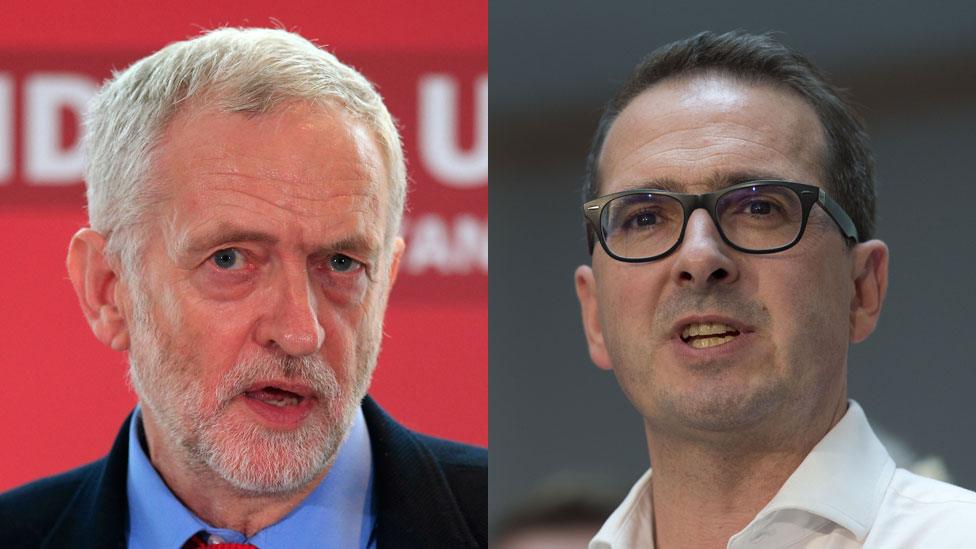Will the Labour party split?
- Published
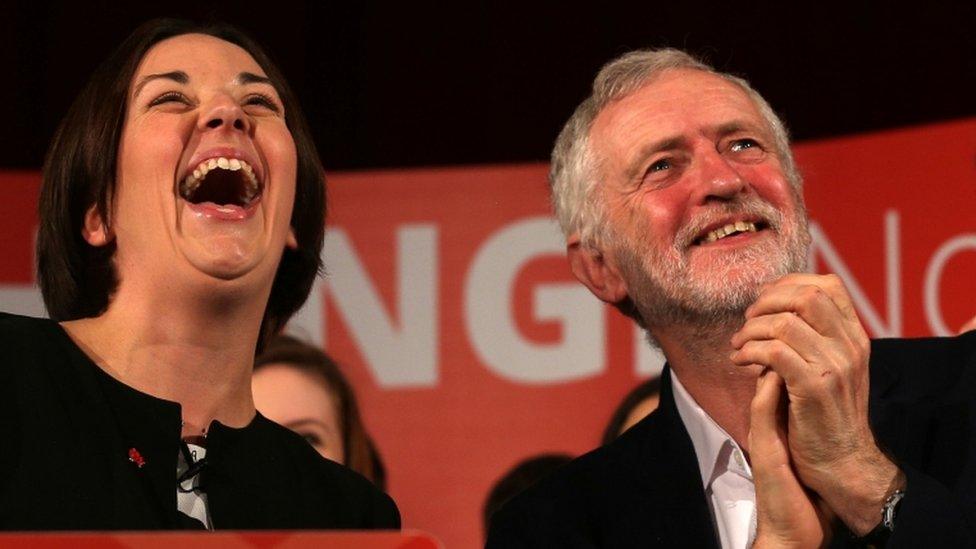
Kezia Dugdale isn't backing Jeremy Corbyn in the Labour leadership race
Will the Labour Party split? Possibly, although by no means certainly. If there is to be a split, which of three feasible fissures would be followed?
Three? One, Labour's members could formally divide into two parties, presumably along Left and Centrist lines. Two, Labour's MPs could form, de facto, a parliamentary party of their own, paying minimal heed to the wider party.
Three, Labour in Scotland, concerned at developments emanating from London, could build upon existing autonomy to create an entirely distinct party north of the Border.
To be clear, there are huge practical obstacles in the path of any of these prospective developments, even if there were to be a declared will to pursue them. There are problems of organisation, legal title and, above all, funding.
But a form of split is by no means inconceivable. As I have repeatedly noted on this site, all political parties are contrived coalitions of the more or less willing. They have no intrinsic existence which prevents fragmentation.
Parties remain in existence, generally, because the membership as a whole shares a set of values, albeit often imprecise and inchoate. They band together in pursuit of power in order to put those values into practice.
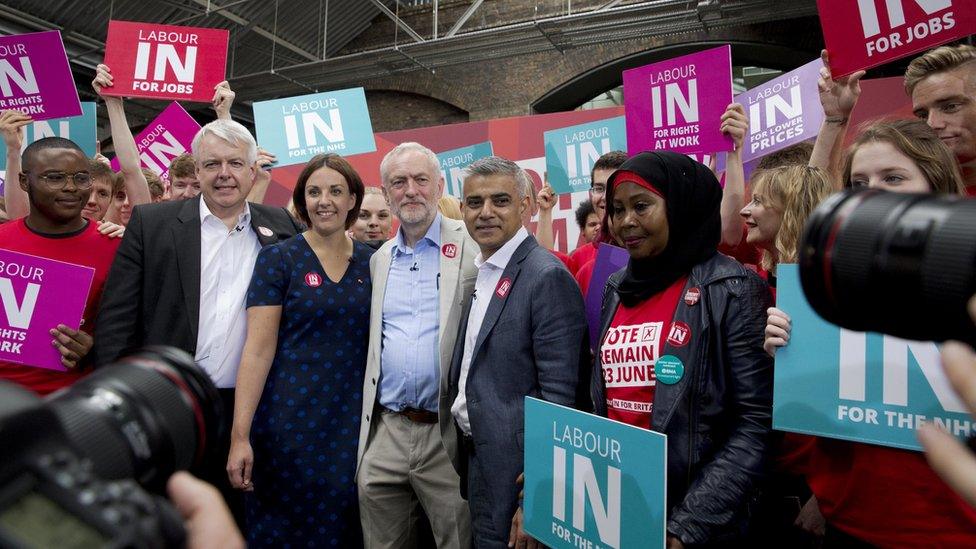
There are other elements in the glue. History, friendship, familiarity, habit and custom, inertia - the sheer, grim challenge of trying something else.
None of these is insurmountable. The Tories split over the Corn Laws (essentially protection versus free trade) in the 1840s. The Liberals split over Irish Home Rule in the 1890s. Much more recently, the SDP broke from Labour in the 1980s and merged with the Liberals to form the Liberal Democrats.
Might it happen to Labour now? I was prompted to reconsider such matters by the remarkable interview which Gary Robertson conducted with Kezia Dugdale on BBC Radio Scotland's Good Morning Scotland.
The Scottish Labour plainly had a cunning plan in advance of the interview. She was not going to diss Jeremy Corbyn. Rather she had come to praise his rival, Owen Smith. Mr Smith, it seemed, is not just the last one standing when it came to seeking to oust the incumbent: he is the one to return Labour to UK power.
Internal squabbling
Not sure if you caught the interview but I suspect you will not be surprised to learn that the cunning plan went somewhat agley, as tends to happen to such stratagems. Under polite but persistent questioning, Ms Dugdale was constrained to confront the disquiet currently prevalent in her party.
To her credit, she did not ultimately duck that discontent. Having sidelined the opening plan, she conceded that Labour was "in a difficult position", that the contest was "ugly" and that voters tended not to reward parties in such circumstances, that they found it a "turn off".
In response, Mr Corbyn's supporters suggest that it might be helpful if folk like Ms Dugdale supported the democratically elected leader. One J. Corbyn. That he would prove popular if the internal squabbling would end.
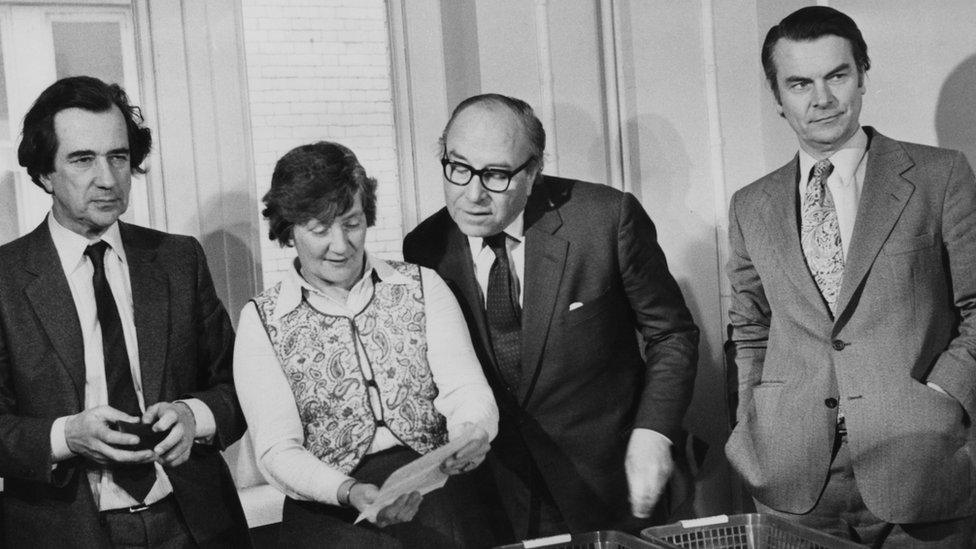
William Rodgers, Shirley Williams, Roy Jenkins and David Owen split from the Labour party to form the Social Democratic Party in 1981
In response to which, Mr Corbyn's detractors suggest that he is a loser with satisfaction ratings which make the Michael Foot leadership seem like a golden age.
Labour in Scotland has spent the summer gallantly trying to divert attention to the governmental record of Nicola Sturgeon and her Ministers. The talk has been of education, of the health service and the rest.
But Kezia Dugdale is very far from daft. She knows - she knows - that such campaigning effort, while valid and worthwhile, is poisoned in the public mind by an overall impression of a party's standing. That divided parties - and Labour is sharply divided - do not tend to thrive.
So might Labour split? I think a formal division on the lines of the SDP departure is unlikely at this stage. Too messy, too ugly. That plus the multiple claims upon Labour's true soul, Labour's core values. Mr Corbyn's critics have not - yet - given up on the idea of reclaiming the party from beneath him.
Foot soldiers
How about an effective declaration of UDI (unilateral declaration of independence) by a substantial section of the Parliamentary Labour Party at Westminster?
That seems more likely. One, because a fair chunk of the PLP has either quit the Shadow Cabinet, been sacked - or supported such departures from the backbenches as heroic rather than disloyal.
Such a tendency might be further encouraged if and when there is a move to introduce mandatory mid-term reselection of MPs: designed presumably to prise out "moderates" who do not take the Corbyn line.
How about full independence for the Scottish Labour Party? In one of her less assured passages in this morning's interview, Ms Dugdale was obliged to concede that her team in Scotland relied upon Britain-wide party funding. Rather unconvincingly, she said it was balanced by Scotland sending foot-soldiers to by-elections in England and Wales.
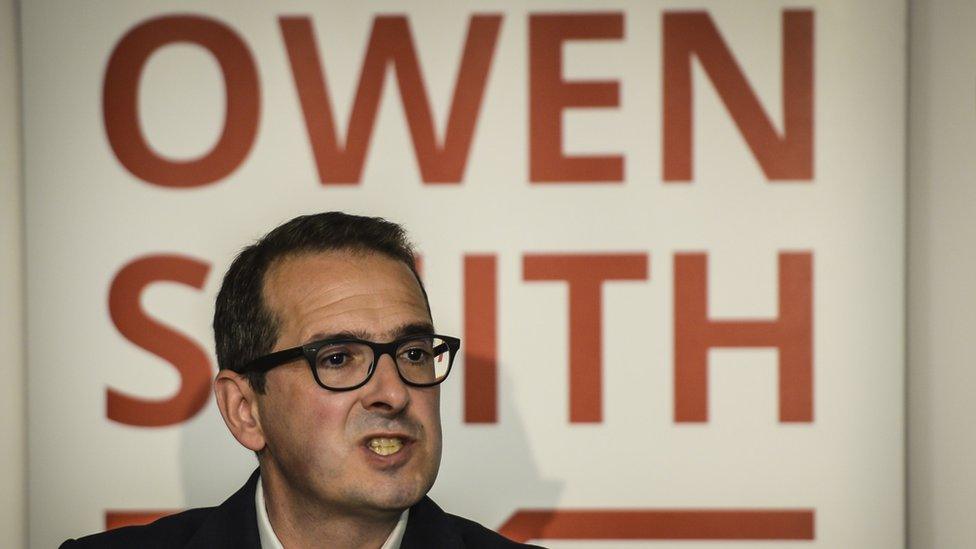
Ms Dugdale believes Owen Smith could reunite the party and win a general election
Might there be a further move to distance the Scottish party from the set-up south of the Border? I think it likely although, as Ms Dugdale would concede, there are limits. Scottish Labour would still be seeking to bring about a UK Labour government, albeit that the Scottish party's contribution at Westminster is currently rather insubstantial.
(Ms Dugdale praised Ian Murray warmly and I am certain she meant it sincerely. But he remains a solitary figure.)
Here's another question. Might the Prime Minister consider calling an early UK general election, in the light of Labour's travails? She must be sorely tempted, sorely tempted.
Against that, though, two things. Firstly, she cannot simply call an election because of fixed term parliaments. She needs a two thirds majority in the House to dissolve Parliament or a successful motion of no confidence in her government.
Even if she could get around those hurdles, does the will exist? She says no, arguing that her team is only just in office and that the government as a whole is but a year old.
Behind that, another thought. The UK is in a state of deep anxiety - over the economy, over the terror threat, above all over the next stages in Brexit. Calling a snap election would arguably run counter to the objective of offering reassurance. It might, in short, appear sneaky.
Right now, there are few in Labour's ranks who would welcome such an early ballot. They must simply hope that their internal conflict is resolved. One way or another.
- Published22 August 2016
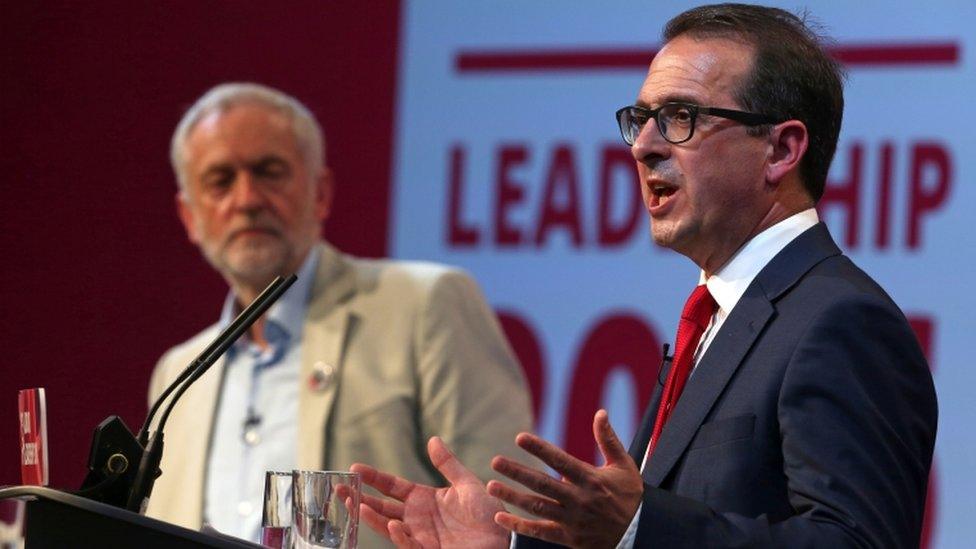
- Published21 September 2016
